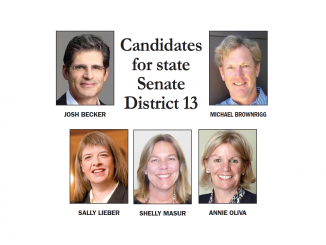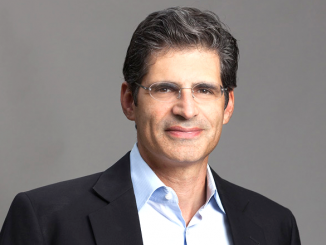
This story was originally printed in the Daily Post on May 28. To avoid missing important local news stories, pick up the Post in the mornings at 1,000 Mid-Peninsula locations.
BY EMILY MIBACH
Daily Post Staff Writer
A housing bill that would allow four homes to replace a single-family residence has moved forward in the state Legislature, with Peninsula state Sen. Josh Becker supporting the measure.
Senate Bill 9 went May 26 from the state Senate to the Assembly, which will likely further amend the divisive bill. Becker, D-Menlo Park, Clerkwas among the 28 “aye” votes for the bill.
“We all want to make sure our community is a place where our children can stay and thrive,” Becker said. “This is the bill, and I’ve been trying to help move it in the direction, that we get closer to that goal.”
SB9, proposed by Sen. Toni Atkins, D-San Diego, would allow the owner of a single-family home to build a second home or a duplex on their lot with only ministerial approval from the city. Ministerial approval, also known as “by right” approval, means that the city must approve the proposal if it meets a set of fixed standards. SB9 would also allow, with ministerial approval, a single-family lot to be split into two lots of roughly the same size.
Opposition
Not everyone is a fan of the bill, with cities such as Palo Alto, Los Altos and San Carlos sending letters of opposition to Sacramento over the bill.
Other opponents include Foster City, Belmont, Half Moon Bay, Saratoga, Santa Clara and Sunnyvale, Palo Alto’s College Terrace Residents Association, the Howard Jarvis Taxpayers Association, the League of California Cities, Liveable California, Los Altos Residents and the South Bay Cities Council of Governments.
The League of California Cities in a letter opposing the bill says SB9 will not create housing “in a manner that supports local flexibility, decision making, and community input. State-driven ministerial or by-right housing approval processes fail to recognize the extensive public engagement associated with developing and adopting zoning ordinances and housing elements.”
Becker added he thinks both proponents and opponents have exaggerated what the bill will do. But he said he understands that some are worried the bill will dramatically affect neighborhoods or property values. He added part of the reason he is comfortable with the bill is because of amendments recently made that require owner occupancy of one of the units to ensure developers are not trying to maximize profit off of this bill.
Supporters
Among those in support are the Chan Zuckerberg Initiative, California YIMBY, the AARP, the city of Oakland, Councilman Zach Hilton of Gilroy, Facebook, MidPen Housing Corp., Mountain View YIMBY, Sand Hill Property Company, the Silicon Valley Leadership Group and Silicon Valley@Home.
“At a time when many Californians are experiencing economic insecurity caused by the pandemic, this bill will provide more options for families to maintain and build intergenerational wealth – a currency we know is crucial to combatting inequity and creating social mobility. SB9 provides flexibility for multigenerational housing by allowing homeowners to build a modest unit on their property so that their aging parent or adult child can have an affordable place to live,” according to Atkins.
Becker said SB9 is one of the bills that his office has received the most calls on. However, his office is also getting numerous calls on another housing bill, SB10, which the Senate is yet to vote on. Becker wouldn’t say how he plans on voting on that bill but did say he has some concerns about it.
SB10 would allow a local government to zone any parcel for up to 10 units of housing without needing an environmental review if the parcel is in what’s considered a transit-rich area, a jobs-rich area, or an urban infill site. Adopting such zoning would be a voluntary move for cities.
The bill would give city councils the authority to override voter-approved land-use initiatives in zoning parcels for 10 units.
Previous Post stories on SB9 and SB10
April 30 — High-density housing bills advance in Legislature
March 19 — Guest Opinion: SB9, SB10 are the kiss of death for single-family home neighborhoods
March 8 — More density in neighborhoods? Opposition is growing to bill that would allow four homes on a lot




SB9 isn’t about whether there should be 4-8 -plexes in R1 neighborhoods – it’s actually about who should make that decision: should individual cities decide for themselves, or should Sacramento impose it statewide for everybody? Special interests (above) prefer Sacramento – it’s a single point of lobbying, and provides leverage over communities where a majority of voters would oppose them. On the other hand, most polls (including YIMBY polls https://www.google.com/url?sa=t&rct=j&q=&esrc=s&source=web&cd=&ved=2ahUKEwiqpcOS66vuAhWkHDQIHc0tBysQFjAAegQIAxAC&url=https%3A%2F%2Fcoredecision.com%2Fsites%2Fdefault%2Ffiles%2Farticle-files%2FCODA-FSBPA-Bay-Area-YIMBY.pdf&usg=AOvVaw1MvAV935lo-1IYcR8kNu3h
) indicate voters overwhelmingly prefer such decisions to be made locally; hence the opposition from cities (also above).
The issue presents a challenge for State Senators and Assembly representatives, since it pits Sacramento Party Leadership directly against the local constituents they represent, and they must choose between them.
SB10, which would allow local (initially) legislators to actually overturn successful voter initiatives, pits an even starker government-against-voters split. Not all governments like misaligned voters, it seems.
As usual, Eric, you’re half right. No city council is going to approve eight-plexes in an R-1 zone. You’ve got that part wrong. The issue is whether Sacramento is going to shove that kind of density down our throats or not. Becker has shown his true colors, now we’ll see how Berman votes.
These bills don’t have the same effect in all areas of the state, even if they are limited to “urban” areas. In Orange County it may result in Democrats losing recently won seats in the U.S. house. The red side likes to laugh at the crazy liberal lefties, and this can easily be seen as fodder for that. The bills are very convoluted with plenty of room for unexpected consequences. Plus, of course, they won’t help to add affordable housing, just more options for Young Urban Professionals to invest their $1M+ in real estate in a few different places.
SB 9 and 10 promotes centralized planning (think, Soviet central planning) further homogenizing the state to everywhere is exactly like everywhere else (which is a lot like what it looks like after corporate developers pave over California’s hills and valleys. Local communities – if we still think communities are important – need to retain control. This is exactly what leads to nameless, faceless twice-removed and distant decisions where local needs and sentiments are no longer heard. Localities must add housing and grow – and soon – but these approaches are the wrong approaches. All of California is a big place – grow towns and satellite offices elsewhere – everyone doesn’t need to be on the Peninsula. Decentralize. The answer to shortage isn’t to build out over-crowding. Becker feels differently than his constituents and doesn’t want to tell us yet how he will vote on 10. Vote him out.
Maybe a complete recall of the assembly, once again they have demonstrated there abilities of not allowing the people of the community to make there own decisions about the densities of there cities and towns. They would fail at running a private business and they fail at running the state government, they want total control no voter input. The only areas they excel in is raising the cost of government. They always support a Cost, fee or tax Increase, spend on a Train to no where. They Have not built any reservoirs for water Storage and electrical generation Energy, utilities cost are higher than Hawaii, and many other states. They listen to small special interest groups that promise them favors and support. Our representatives tend to pick the most expensive path forward To achieve the least. They should provide the best possible government for the smallest cost and respect the voter and there towns rights, but they know more and are better than the people they pretend to serve. They want to get rid of public input as evidenced in there no NIMBE cause they attach to assembly bills. They do not believe in democracy or freedom on choice and they operate as a non representative form of government. Let’s recall all of these pompous self serving individuals and set California And it’s Cities and Towns on a path the residents will decide. Contact your representatives and demand they take action in serving and promoting the direction the community has decided on, as the people have elected them to do.
Whether it’s news about local school boards pushing critical race theory or some variant of sexuality or pushing a pot agenda or Rezoning for ‘equity’, or Gay marriage, etc. politicians increasingly interpret their election as license to promote their personal opinions. They are elected to represent their constituencies interests, not their personal agendas. We need to remember that ours is a representative government – not by and for some minority or activist interest but for everyone. New zoning laws are coming because the very few are pushing an idea that central planning and central control will solve everything. It won’t. It will have the worst consequences on the poor. But this is the trend everywhere and especially in one party CA. The left has become too extreme – no question. Vote all of the out is a good idea if Californians could only stop voting for the same candidates over and over again.
Hopefully the whole housing package can be passed so that wealthy nimby peninsula cities can actually start to allow more housing options. We’ve seen the consequences of exclusionary zoning, with the boom of jobs and stagnation of housing units leading to the shortage/crisis. It’s no surprise the votes against SB9 in the senate were republicans.